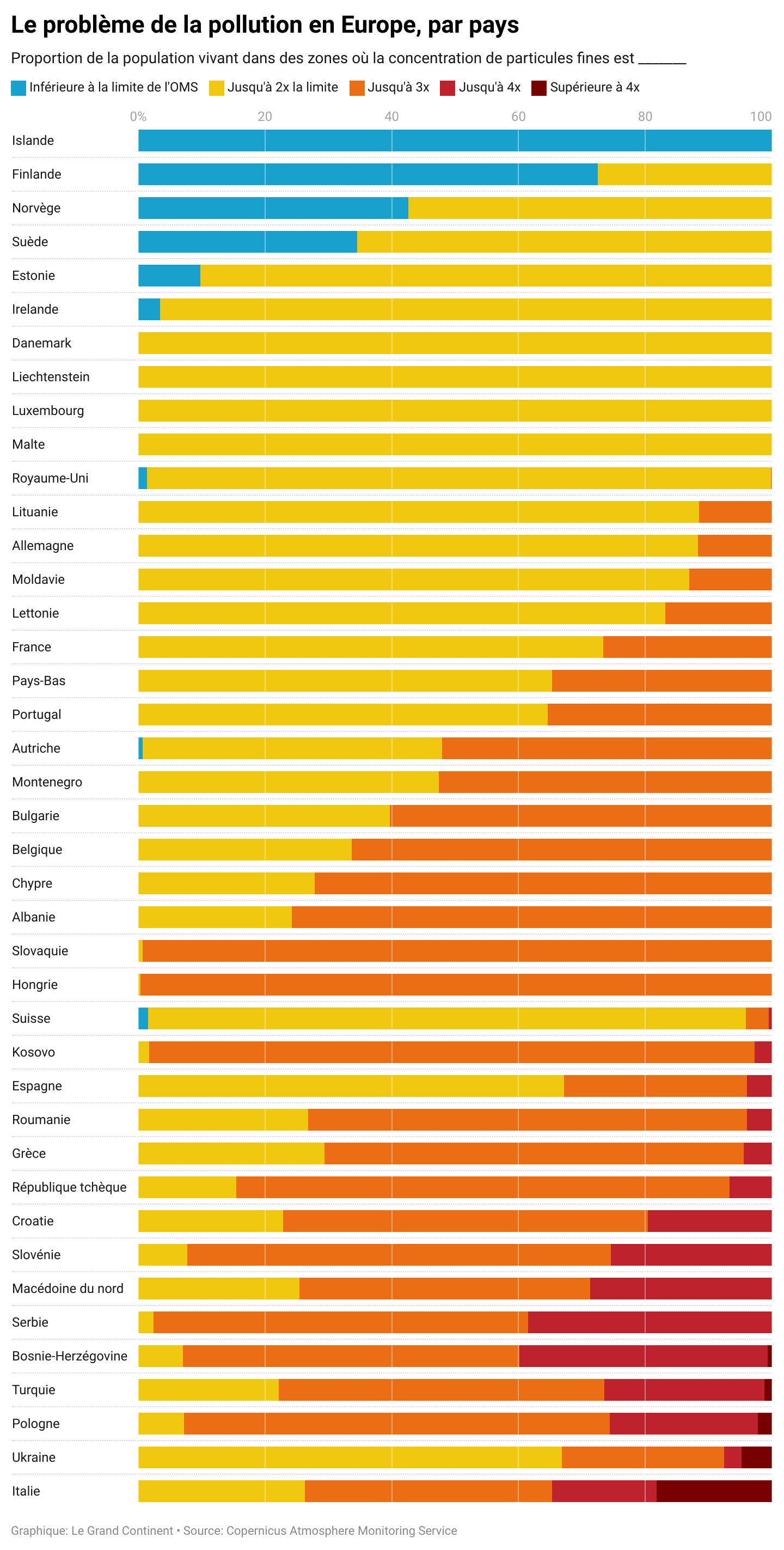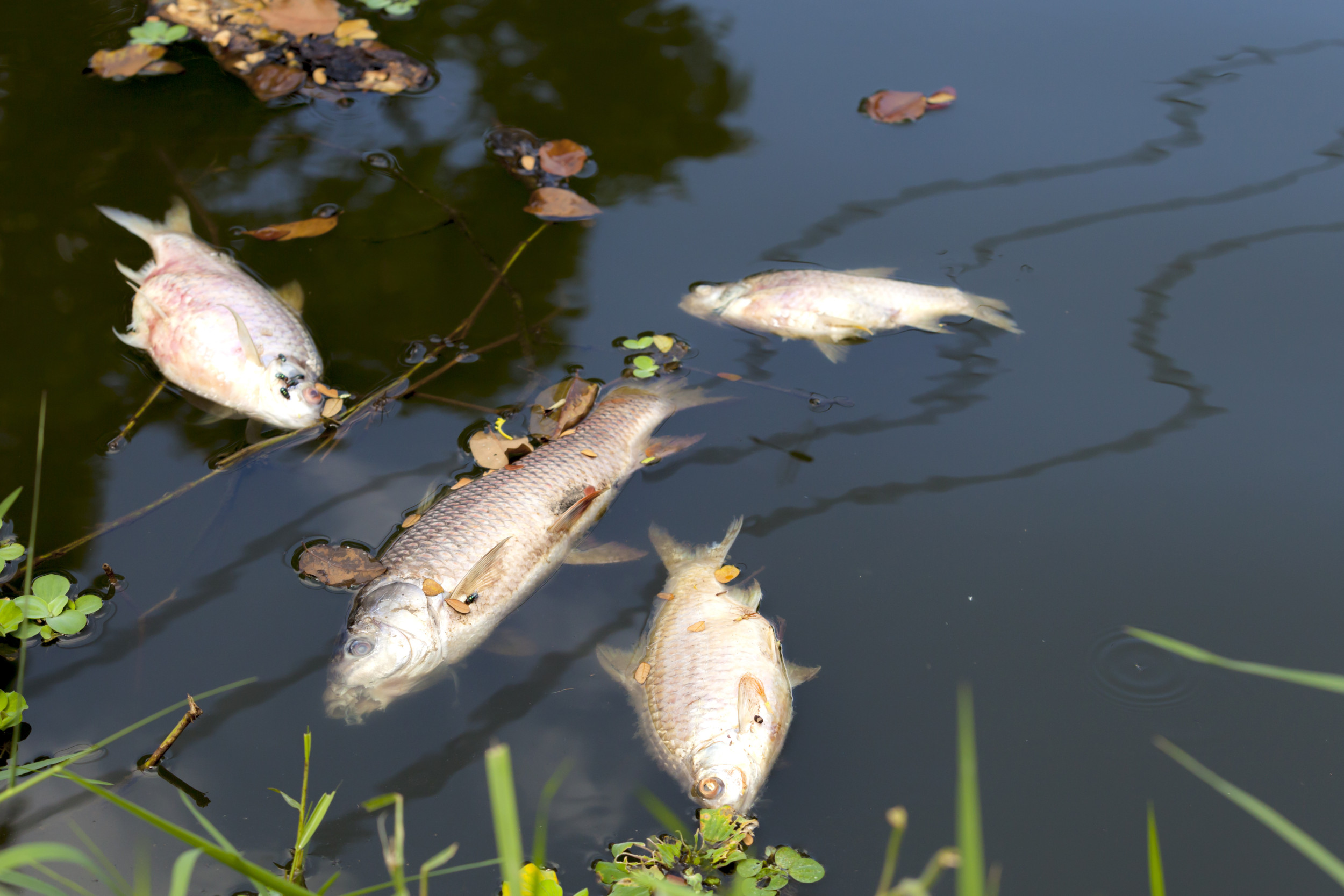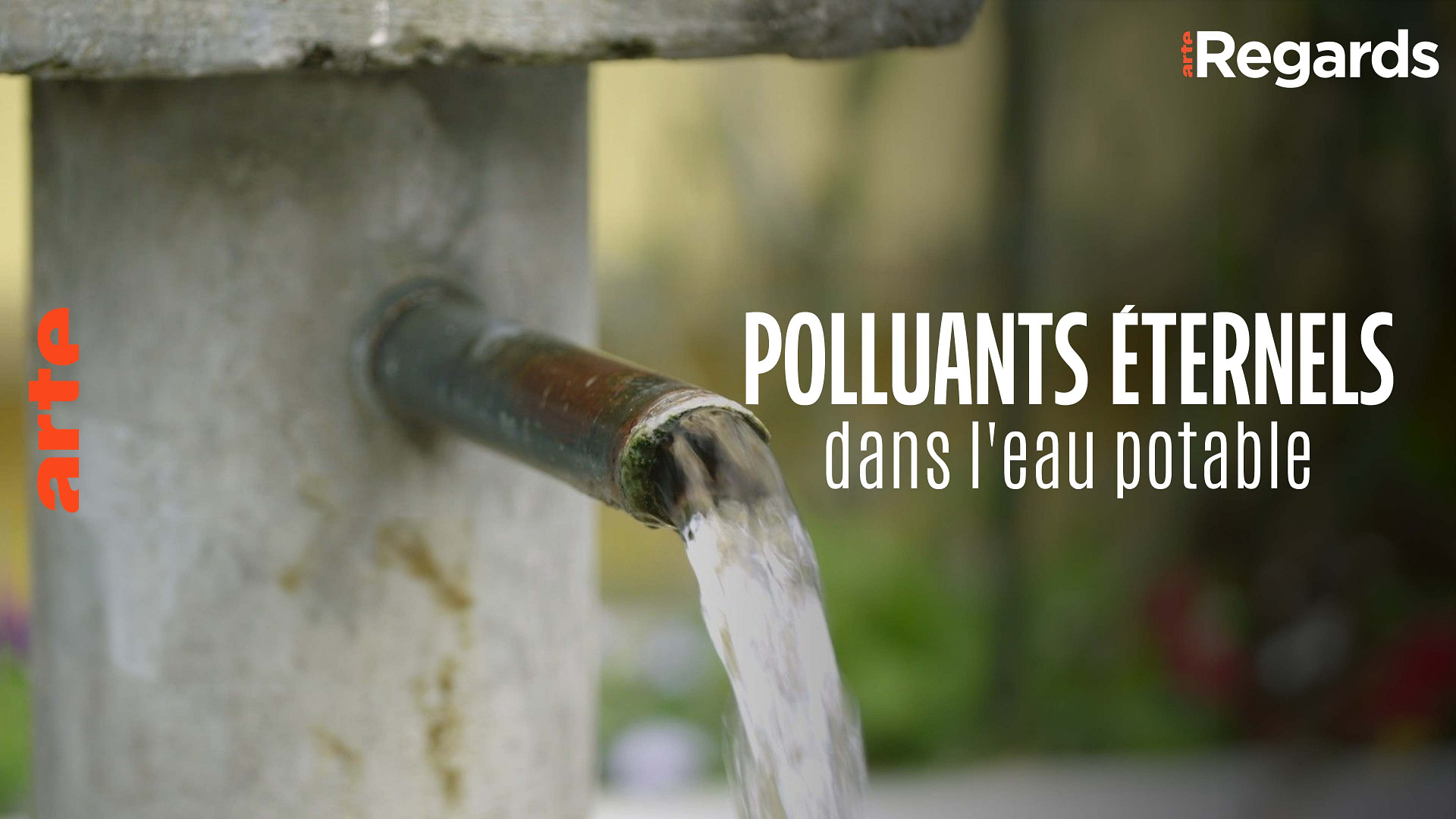1 Shares
#pollution
1 Shares
Sols pollués aux pesticides : « La seule alternative, c'est d'arrêter d’épandre ces saloperies sur nos terres » - Basta!
2 Likes
1 Comments
1 Shares
5 Likes
1 Comments
2 Shares
The media needs to cover the climate crisis as seriously as it covered Covid
The Guardian
With some exceptions, the news industry is still not responding to the true scale and danger of global heating. (...)
Despite our living through the hottest summer in history, as well as wildfires, tropical storms and crazy-hot oceans, the news media continues to be outdone by the rest of popular culture when it comes to covering the most urgent story of our time.
(text continues underneath the picture.)
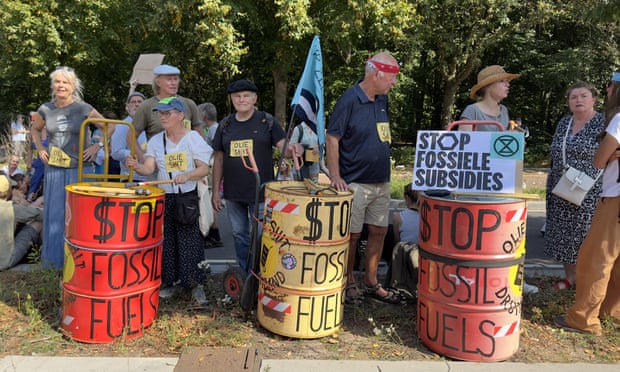
‘With the planet on fire, more and better news coverage is itself an essential climate solution.’ Photograph: Anadolu Agency/Getty Images.
Inexplicably, climate crisis remains a niche concern for most mainstream news outlets. In the US, most TV coverage of this summer’s hellish weather did not even mention the words “climate change” or “climate crisis”, much less explain that the burning of oil, gas and coal is what’s driving that hellish weather. Too many newsrooms continue to see climate as a siloed beat of specialists. (...)
Dramatic changes in climate have made increased news coverage of extreme weather unavoidable. But explaining the climate connection to extreme weather is a different task. Linking changes in the weather to the decisions being made by industry and government, that have overheated the planet is where news coverage needs to end up. (...)
In every newsroom in every community, climate crisis needs to be thought of not as a beat, but as a through-line involving everything we do. No corner of the newsroom is exempt – not business or culture, not sports or city hall. (...)
Can politics reporters and editors scale back their fixation on horse-race coverage and instead provide the kind of coverage that voters need to make informed choices? Election coverage should help audiences understand what the candidates will do about the climate crisis if elected, not just what they say. It should hold candidates accountable by asking them not (as Fox did at the first US Republican debate last month) whether they believe in climate change but rather, “What is your plan to deal with the climate crisis?”
Overall, we also need much more and better coverage of climate solutions. (...)
What else does “more and better” climate coverage mean? We expect some answers to emerge this week at Climate Changes Everything: Creating a Blueprint for Media Transformation, a conference at the Columbia Journalism School in New York. (...)
With the planet on fire, more and better news coverage is itself an essential climate solution. Only when the general public understands what is happening, why and what needs to be done, can large enough numbers of people compel governments and corporations to change course. (...)
But the news industry as a whole is still not matching the scale of the crisis with the kind of coverage that’s required. (...)
> See also: Climate Collapse – The Grim Silence Of Our Leaders (Media Lens)
Tags: #climate #climate_change #climate_crisis #fossil_fuels #co2 #pollution #air_pollution #global_warming #extreme_weather #forest_fires #flooding #heat_waves #health #climate_deniers #propaganda #fake_news #disinformation #capitalism #industrial_capitalism #media #news #news_media #journalist #journalism #Covering_Climate_Now
lmost everyone in Europe is breathing toxic air
The Guardian
Guardian investigation finds 98% of Europeans breathing highly damaging polluted air linked to 400,000 deaths a year.
Europe is facing a “severe public health crisis”, with almost everyone across the continent living in areas with dangerous levels of air pollution. (...)
> Europe’s pollution divide: see how your area compares
(Text continues underneath the satellite picture.)
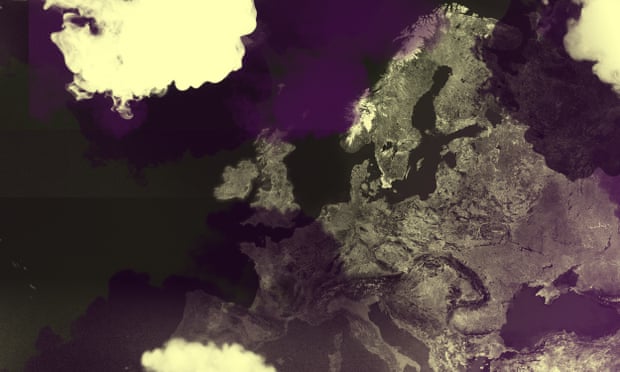
Only 2% of Europeans breathe air within WHO guidelines for fine particulate pollution, with 30 million living in areas four times over those limits. Composite: Guardian Design/Getty Images.
reveals a dire picture of dirty air, with 98% of people living in areas with highly damaging fine particulate pollution that exceed World Health Organization guidelines. Almost two-thirds live in areas where air quality is more than double the WHO’s guidelines. (...)
Eastern Europe is significantly worse than western Europe, apart from Italy. (...)
Close to 30 million Europeans are living in areas with small particle concentrations that are at least four times the WHO guidelines. (...)
Traffic, industry, domestic heating and agriculture are the main sources of PM2.5 and the impact is often felt disproportionately by the poorest communities. (...)
But experts say urgent action needs taking now. They point to a growing body of evidence that shows air pollution affects almost every organ in the body and is linked to a huge range of health problems from heart and lung disease to cancer and diabetes, depression and mental illness to cognitive impairment and low birth weight.
One recent study found air pollution was responsible for 1 million stillbirths a year, another that young people living in cities already have billions of toxic air pollution particles in their hearts. (...)
resulted in hundreds of thousands of deaths each year.
“These deaths are preventable and the estimate does not include millions of cases of non-fatal diseases, years lived with disability, attributable hospitalisations, or health effects from other pollutants.” (...)
“This is the best data that there is available at the moment … Now we need politicians to be bold and ambitious and take the necessary urgent steps to tackle this crisis.”
Tags: #pollution #air_pollution #traffic #industry #domestic_heating #agriculture #small_particles #health #pm2.5 #public_health_crisis #who
One person like that
#Car firms condemn #RishiSunak’s plan to delay #petrol and #diesel vehicle ban | #AutomotiveIndustry | The Guardian
You know there's something wrong with government policies if even #CarManufacturers are up in arms about the idea of delaying the transition to #ElectricVehicles.
#Environment #Politics #Tories #GlobalWarming #ClimateChange #Pollution
5 Likes
European governments shrinking railways in favour of road-building, report finds
The Guardian
Rail networks in most countries have been starved of funding while motorways lengthen, study shows.
(Text continues underneath the photo.)
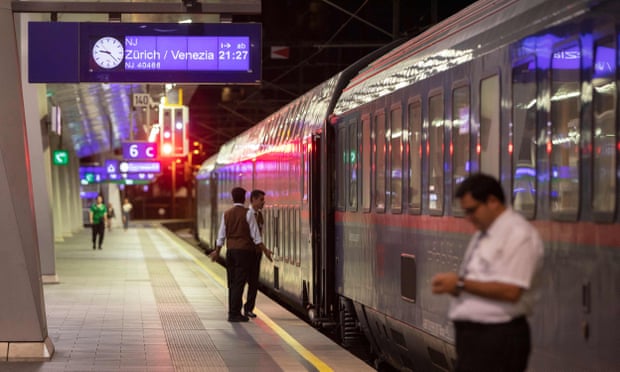
A sleeper train in Vienna. Austria is one of only seven countries in Europe that has invested more in its rail network than on roadbuilding in recent years. Photograph: Alex Halada/AFP/Getty Images.
European governments have “systematically” shrunk their railways and starved them of funding while pouring money into expanding their road network, a report has found.
The length of motorways in Europe grew 60% between 1995 and 2020 while railways shrank 6.5%, according to research from the German thinktanks Wuppertal Institute and T3 Transportation. For every €1 governments spent building railways, they spent €1.6 building roads. (...)
“Most European countries have been actually encouraging car use by investing large amounts of public money into expanding motorway infrastructure.”
In the public and political debate, Mattioli added, small investments into bike lanes and railways were heavily scrutinised while investments in roads were taken for granted. “This absolutely needs to change if we are to meet climate mitigation targets in the transport sector.” (...)
The EU plans to cut its greenhouse gas emissions by 55% by the end of the decade from 1990 levels but has failed to make any headway in its transport sector. Road transport was responsible for three-quarters of the sector’s emissions in 2020. (...)
“The €9 and €49 German tickets have given many the impression that people would shift to public transport if it were cheaper. But levels of service and infrastructure networks are much more important for modal shift. So I think we should be talking less about fares and a lot more about infrastructure.”
Tags: #climate #climate_change #climate_crisis #europe #eu #european_union #transport #cars #public_transport #roads #rail #railways #infrastructure #greenhouse_gas_emissions #greenhouse_gas #air_pollution #pollution
Le grand continent
Pollution de l’air : 91 % de la population mondiale est exposée à des niveaux trop élevés selon l’OMS
La pollution atmosphérique est la plus grande menace environnementale sur la santé mondiale, d’après l’OMS.
https://legrandcontinent.eu/fr/2023/09/17/pollution-de-lair-91-de-la-population-mondiale-est-exposee-a-des-niveaux-trop-eleves-selon-loms/
#santé #pollution
One person like that
1 Comments
Reporterre
Pollution et malbouffe : les cancers explosent chez les jeunes
En trente ans, les cancers chez les jeunes ont grimpé de 80 %. Les principaux responsables : les polluants environnementaux et une mauvaise alimentation, analyse le Dr Jean-David Zeitoun.
l’incidence des cancers précoces devrait encore croître de 31 % d’ici 2030. Les décès de 21 %.
Les causes sont difficiles à déterminer, mais on en sait suffisamment pour dire que les facteurs alimentaires et/ou environnementaux sont les principaux suspects.
https://reporterre.net/Pollution-et-malbouffe-les-cancers-explosent-chez-les-jeunes
#cancers #ecosystème #pollution #malbouffe
France TV info
"Les arbres ont poussé dans le plastique" : dans la forêt près de Vittel, l'immense décharge sauvage de Nestlé menace de polluer les nappes phréatiques
L'or bleu avait fait la fortune de cette petite ville des Vosges. Aujourd'hui, alors que le groupe Nestlé, propriétaire de Vittel, Contrexéville et Hépar, est accusé d'épuiser la ressource, les nappes phréatiques seraient de surcroît menacées de pollution par des décharges sauvages…
https://www.francetvinfo.fr/replay-magazine/france-2/envoye-special/video-les-arbres-ont-pousse-dans-le-plastique-dans-la-foret-pres-de-vittel-l-immense-decharge-sauvage-de-nestle-menace-de-polluer-les-nappes-phreatiques_6056487.html
#Vittel #pollution #plastique #nappesphréatiques #eau
#Rivers Are Losing #Oxygen Faster Than #Oceans ...
#climate #change #environment #pollution
https://www.newsweek.com/rivers-losing-oxygen-heating-climate-1826964
1 Shares
#Reportage - ARTE Regards - #Haute-Savoie, polluants éternels dans l' #eau potable
https://www.arte.tv/fr/videos/112475-008-A/arte-regards/
Octobre 2022, une très mauvaise nouvelle s’abat sur la commune de #Rumilly en Haute-Savoie. L’ #EauPotable est polluée, il faut fermer les vannes qui alimentent les 16 000 habitants de la ville. Le maire, Christian Heison, découvre alors les #PFAS dont il n’avait jamais entendu parler jusqu’alors.
le maire doit, en urgence, raccorder son réseau d’eau potable à #Annecy qui va lui venir en secours. Pendant ce temps, les têtes se tournent vers les potentiels responsables de cette #contamination, les #industriels du coin : #Salomon, le fabricant de #ski, et #Tefal, inventeur de la première #poêle antiadhésive.
One person like that
3 Comments
Climate Collapse – The Grim Silence Of Our Leaders
Media Lens
None of us has previously witnessed a barrage of extreme weather events of the kind that has been devastating lives across the globe this summer. (...)
Almost as astonishing has been the indifference of our leaders. The silence has been deafening. Where are they? Why is no-one joining the dots and demanding some kind of serious response? (...)
(Text conitinues underneath the picture.)
Broadcaster and author Stephen Fry said on the BBC:
‘Extraordinary that you can have a conversation with an economics minister in Labour who didn’t even mention the climate catastrophe coming, that there’s a tsunami coming towards us… yet everyone is talking about just doing the same thing only better. It’s catastrophic.’ (...)
Or compare with NASA climate scientist Peter Kalmus, previously arrested for defending the Earth:
‘Dear journalists of the world: We are at risk of losing basically everything. This – what we’re experiencing now – is how that process unfolds. The more fossil fuels we burn, the further in that process we go.
‘You MUST begin to tell 5 critical truths. Civilization depends on it.’
Despite the overwhelming evidence that climate catastrophe is not just a looming threat, it is here; despite the desperate pleading for help from climate scientists; and despite the surreal silence and indifference of Western political leaders, a stubborn rump of opinion continues to insist that the climate crisis is a cynical scam promoted by vested interests. (...)
It is crucial to look deeper because the reality becomes clear when we ask even the simplest of rational questions:
How does the [media] coverage afforded to climate collapse compare to coverage afforded to other comparable threats?
How much of this coverage recognises the true severity of the threat, its true corporate causes and the business-unfriendly revolution in priorities required if it is to be addressed? (...)
As recently as April 2019, even after the start of the mass climate protests a year earlier, Columbia Journalism Review reported:
‘Yet at a time when civilization is accelerating toward disaster, climate silence continues to reign across the bulk of the US news media. Especially on television, where most Americans still get their news… Many newspapers, too, are failing the climate test. Last October, the scientists of the United Nations’ Intergovernmental Panel on Climate Change (IPCC) released a landmark report, warning that humanity had a mere 12 years to radically slash greenhouse-gas emissions or face a calamitous future in which hundreds of millions of people worldwide would go hungry or homeless or worse. Only 22 of the 50 biggest newspapers in the United States covered that report.’ (...)
Corporate media are not making this the World War Three-style crisis it clearly is. Indeed, the deepest causes and solutions of the crisis are rarely even mentioned. The irony is that climate deniers are convinced the ‘mainstream’ is giving climate collapse heavy coverage precisely because the ‘mainstream’ has obscured the true scale of a crisis that actually merits vastly more coverage. (...)
Thus, while it is, of course, true that our world is currently awash with corporate propaganda downplaying the reality of climate collapse, the disturbing truth is that these deceptions often find a receptive audience. Why? Because many people don’t want to consume less or less cheaply; they don’t want to drive or fly less or less cheaply; they don’t want to be denied ever-expanding consumption. (...)
When industrial capitalism tries to impose infinite economic growth on a finite planet, loss of freedom is the inevitable ultimate result. At this point, we have a painful choice between losing some personal freedoms and losing literally everything.
Tags: #climate #climate_change #climate_crisis #fossil_fuels #co2 #pollution #air_pollution #global_warming #extreme_weather #forest_fires #flooding #heat_waves #health #climate_deniers #propaganda #fake_news #disinformation #capitalism #industrial_capitalism
“There’s a tsunami coming towards us…yet everyone (in politics) is talking about just doing the same thing only better. It’s catastrophic.” - Stephen Fry nails current British politics on @bbclaurak pic.twitter.com/cZ0uQnWimD
— Media Tell The Truth XR (@TTTMediaXR) September 11, 2023
#Earth ‘well outside safe operating space for #humanity’, scientists find | #ClimateCrisis | The Guardian
#Environment #GlobalWarming #ClimateChange #Pollution #Biodiversity #Wildlife #Ecology
4 Likes
1 Comments
2 Shares
La grande majorité des gens a peur depuis les années 70.
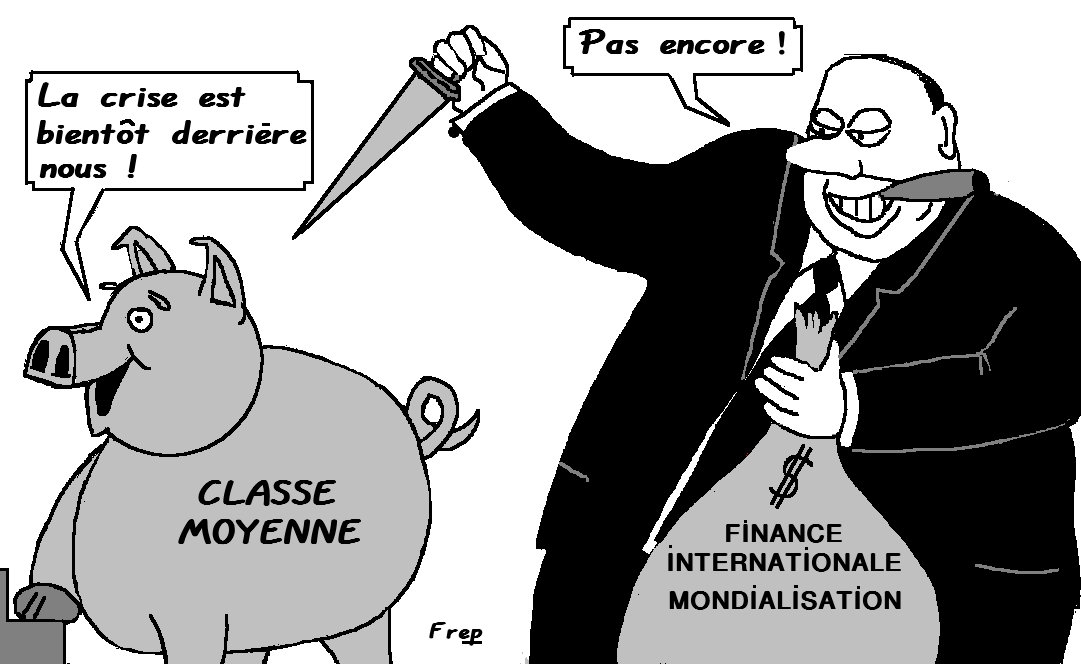
#Peur de l’ #inflation, du #chômage, de la #guerre, du #terrorisme, du #déclassement, de la #pollution, du #climat, des #pandémies, des « #tyrans ».
Et c’est depuis cette #époque que le niveau #intellectuel a commencé à baisser.
Du coup ils ont pas réalisé qu’une #crise #économique qui dure 50 ans, c’est pas une crise.
C’est un mode de #gouvernement pour que les gens soient dociles et qu’ils s’estiment heureux de ne pas être à la rue, et quand ils y sont, ils « n’existent plus »
Ils vous tiennent comme ça.
Voilà.
One person like that
1 Comments
1 Shares
Bon Pote
SHEIN, la marque d’ultra fast fashion qui envahit le monde
https://www.mcinformactions.net/SHEIN-la-marque-d-ultra-fast-fashion-qui-envahit-le-monde?lang=fr
#shein #ultrafashion #exploitation #pollution
World #meteorologists point to ‘vicious cycle’ of #heatwaves and #AirPollution | #ClimateCrisis | The Guardian
#Environment #Meteorology #ClimateChange #GlobalWarming #Pollution
3 Likes
Réseau Sortir du Nucléaire
France : Bugey : Fuites et rejets de gaz à effet de serre
https://www.mcinformactions.net/France-Bugey-Fuites-et-rejets-de-gaz-a-effet-de-serre?lang=fr
#nucleaire #Bugey #pollution
MANGER NOUS MÈNERA À L’EXTINCTION | Documentaire officiel (French)
https://yt.artemislena.eu/watch?v=2s4EYAeZt9I
Eating Our Way to Extinction | Full Film
https://yt.artemislena.eu/watch?v=LaPge01NQTQ
Sujet : #Viande #Poisson #Consommation mais aussi #Pollution, #EffetDeSerre, etc..
Le sujet principal n'est pas à remettre en question, la consommation de viande est en effet un facteur des plus importants, toutefois, ce n'est pas le seul.
Mais...
On entend même le gars à la fin, à la casquette, dire qu'on roulera toujours en voiture, alors qu'on ne pourra pas toujours manger de la viande... Ah bon ? - C'est là que ça sent un peu le docu très orienté. Pour ma part, le déclin tous pétroles doit nous amener, de gré ou de force, à consommer moins de tout, dans le monde occidental en tout cas.. (Difficile, peut-être, ce point, pour Kate Winslet qui doit être richissime... et aux #USA, le pays de la surconso... )
(la divergence des combats menés, qui fait que l'ensemble perd de son efficacité, est connue aussi)
J'aurais des questions, car certaines infos me laissent perplexe, notamment sur le #plastique dans les #océans : autant de plastique qui viendrait en fait de la #pêche ? Des filets ? Et pas de ce qu'on balance à l'eau, de nos déchets ?
Et d'autres choses...
Ah oui, le coup du boucher qui fait sortir du pus d'une épaule de viande de bovin... J'aimerais bien savoir si c'est vrai ça... ou si c'est quoi ? Un liquide de l’articulation ?
Très très inquiétant, est la #pollution de la chair de poisson... Mais quand on y pense, vu qu'on traite les océans comme si c'était nos poubelles, c'est pas très étonnant.. Tu manges le poisson que t'as fait nager dans tes poubelles, et tu t'étonnes...
Mais faudrait que je me tape des recherches...
En commençant par là, notamment :
https://eating2extinction.com/references/
Quelqu'un peut m'aider à chercher dans ces sources ?
La voix off française... Hugo Clément, ça semble être un cas.. du genre avec lequel j'accroche pas : cherche à discuter avec l'extrême-droite Valeurs actuelles, n'a pas de problème avec le #marketing et donc le #capitalisme, le #RN non plus semble-t-il...
#HugoClément, l’écolo que les écolos détestent : ses amis #patrons, ses casseroles…
https://www.lexpress.fr/societe/hugo-clement-lecolo-que-les-ecolos-detestent-ses-amis-patrons-ses-casseroles-WBIEARWPTBG2JDRLEW26X4ESZI/
Prônant le pragmatisme, le journaliste écolo, grand défenseur du bien-être animal, fréquente des grands patrons, gagne de l’argent
Sûr de ses choix, il ne demande conseil à personne avant de participer, le 13 avril, à la soirée-débats de Valeurs actuelles, sur la scène de laquelle il débat avec le patron du RN, Jordan Bardella.
Oui... chacun ses combats, en somme... C'est pas gagné...
One person like that
1 Comments

